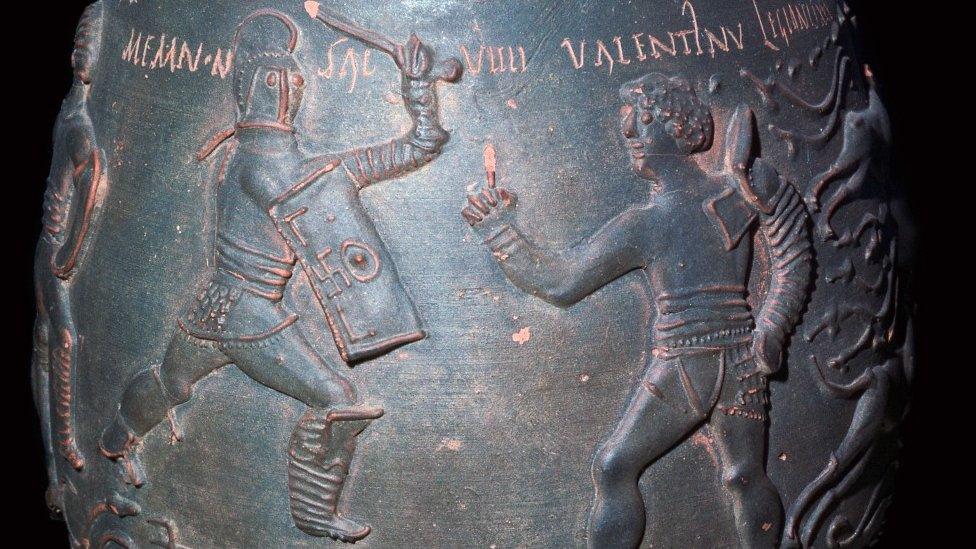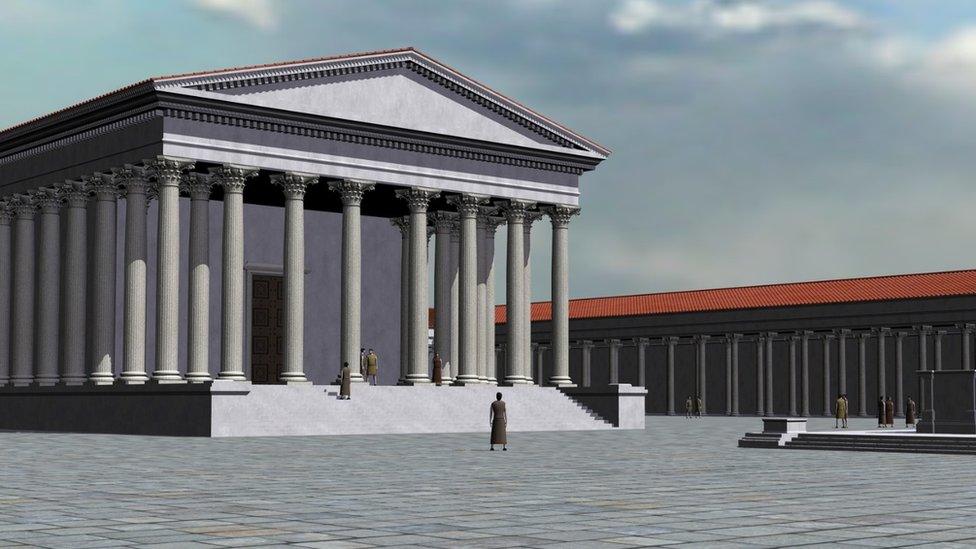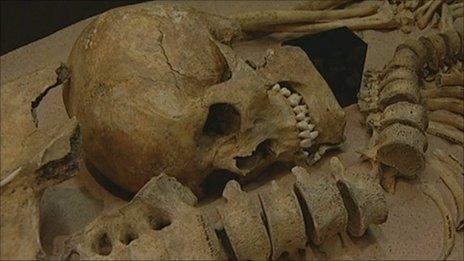Gladiator fights were staged in Roman Britain, evidence suggests
- Published

The Colchester Vase depicts a pair of gladiators named Memnon and Valentinus
Gladiator fights were once staged in Roman-occupied Britain, new research suggests.
Tests have proven that the Colchester Vase - an ancient artefact which depicts a fight between combatants - was locally made and decorated.
With no written information, this was the "only evidence" of such duels in Britain, the head of Colchester and Ipswich Museums told The Observer, external.
The findings have led to "startling new conclusions", Frank Hargrave added.
The vase in question, which is nearly two millennia old, was used as a cremation vessel and discovered in a Roman grave in Colchester in the mid-1800s.
The 23cm-high (9in) vessel, made around AD 160-200, is described as "one of the most important, and perhaps famous, pots from Roman Britain" by Colchester Museums.
It depicts scenes which may have been witnessed in a Roman arena - namely animal hunts and a duel between a pair of gladiators.
Mr Hargrave told The Observer that the vase was of "such high quality that there's been a bit of snobbery, an assumption that it couldn't possibly have come from Britain."
But, he said, the fresh research had "put that to bed."
As well as confirming that the artefact was made from local clay, the analysis crucially showed the names of gladiators Memnon and Valentinus were written into the clay while the pot was being made.
It was previously believed that the inscriptions had been added after the vase had been fired - suggesting less of a link between the decoration and local events.
Analysis of the human remains inside the pot suggested the deceased person was aged over 40, and may have come from overseas.
Glynn Davis, a senior curator of Colchester and Ipswich Museums, told The Observer that the vase may have belonged to a sponsor of the gladiatorial fight depicted.
The item is due to go on display at Colchester Castle from 15 July, along with other significant Roman finds.
Colchester is one of England's most historic cities, having become the capital of Roman Britain soon after the conquest of AD 43, and known as Camulodunum.
Previous discoveries have indicated the presence of Roman-era gladiators in Britain, even if the evidence of arena combat here has been more thin.
Skeletons from an ancient "gladiator cemetery" went on display in York in 2011, although archaeologists said they could not be certain the men were fighters.
Related topics
- Published10 February 2016

- Published28 July 2011
